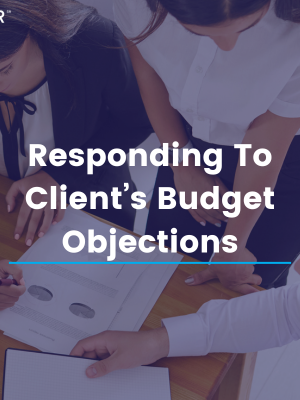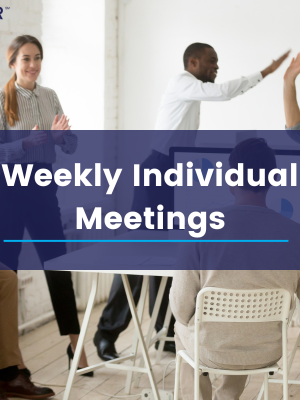Forterra – Revitalizing Sales During and After a Recession
Sandler is a tried and true methodology across any industry. I’ve used them four times at four companies and I’ve trained over 1,000 people.
Karl Watson, CEO Forterra Inc.
The Story
“Sandler is a tried and true methodology across any industry. I’ve used them four times at four companies and I’ve trained over 1,000 people.”
As a CEO of multiple companies, I’ve developed a bit of a playbook for turnaround situations. One of the first questions I ask is, how much time and money have you invested in sales training over the last five years? If the answer is little to none, I know we have a problem.
But I didn’t always believe that.
We were in construction, and after the housing crisis of 2008 our industry dropped by 90% in some states. I mean, it was a freefall. Our profitability went from pro forma over 2 billion to actually losing money. It was like a falling knife. You couldn’t catch it.
We kept jawboning our salespeople: you have to make more calls, fight harder for pieces of fewer pies. I thought I was doing my job by setting high targets and following up on KPIs and, but we weren’t doing anything to actually improve them. We were pretty much whipping a dead horse.
The salespeople who were left had really atrophied. In our industry we have thousandaires negotiating with millionaires. They were a bit lost, and we were just sending them into failure. So, a group came to me and said, “we need sales training.”
Their message was: They’re demoralised. They’ve been beaten down so long. We have to educate them. We have to train them. We have to certify them.
I thought, absolutely not. We’re not doing any sales training. There’s just no way, no how. And whenever you don’t want something to happen, but you don’t want to say no, you give it to a committee.
So I gave it to a committee.
Three months later they presented a very well thought out, thorough analysis that showed that companies that invested in sales managers and sales training had revenue growth x times higher than companies that don’t. They actually did a pretty good job of convincing me that we needed to do something, but I still didn’t want to do this particular thing.
So I sent them off again.
But they did their job and went through about 20 options, narrowed it down to three, and came back saying this is why we’d like for you to interview them. So I was kind of pushed into a corner. Okay. Okay. Okay. Bring them in. We’ll interview them, and then we’ll “decide.”
Now the game plan in my head was devious. It was to bring all three of them in to dismantle them, send them packing, and show that sales trainers don’t know what they’re doing.
Three were lined up, and the last one was Sandler. I was really quite a jerk to the first two. I asked very hard questions, put them on the spot, and quite frankly, they didn’t really perform that well. So two down, one to go.
With Sandler, I proceeded to be the jerk. But every time I said something they would come back at me and ask me a deeper question. They were uncovering pain that I didn’t even know that I had.
About halfway through, two and a half hours in, I had an out of body experience. Like–
I can’t believe this is happening to me: I’m losing this argument.
I was just amazed. I started thinking if they can do this to me as somebody who’s so vehemently anti-sales training, then this is the group I want to work with.
When we began working with Sandler I was quite humbled. I came to their first boot camp realising two things. One, I had a lot to learn. And two, I did not realise how bad I was. I actually thought I was pretty good. I’ve been rewarded for my commercial efforts all my career, so I thought I knew what I was doing. But I didn’t.
I thought our company was unique. We weren’t. Sales training should be about the salesperson improving their skills. It’s not that putting stuff into Salesforce isn’t important, but it doesn’t help you sell more.
I also thought we could do it ourselves. I really did. I didn’t think we needed a third party to do it. I was so wrong. We don’t have that ability, nor can we teach it.
I knew it was actually working very soon after that initial training. We did these sales success stories, and reading all of the monthly submissions I started thinking, oh, my goodness, the sales team is actually doing stuff differently, and it’s paying real financial dividends.
I’ll give you an example. We do a monthly sales competition to win an iPad. You’d be amazed what people would do for iPad. We get 40-50 submissions a month that can add up to 20,000 units that salespeople would have reduced the price on by an average of 2 to 3% to secure the deal. This time, they didn’t cut the price because they use these 4 or 5 new techniques. Well, that was $30,000 in our pocket.
Or take this–one sales leader three years away from retirement completely changed the way he managed himself, his sales team, how he trained them and what he expected from them. That group’s earnings increased probably three times the rate that it had had a couple years before that.
But these stories are sort of anecdotal. The best way to quantify it is unit margin improvement. How many margin dollars do you have?
I started adding it up and realised the training pays for itself in less than a year, sometimes less than a quarter. I don’t see how you don’t invest in this because it is training the most important people in your business. And the payback is almost immediate.
After safety, revenue is the most important part of any business. In an industrial environment with mature product cycles, the value of the company then lies in the sales team. That makes them the most important group, and it’s almost malpractice if you don’t make your first and largest investment in them.
If they could change the mind of somebody as vehemently anti-sales training as I am, then that was the group I want to work with…
Share your Story
Let us know how we have helped you on your journey to success.







